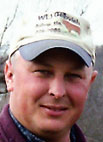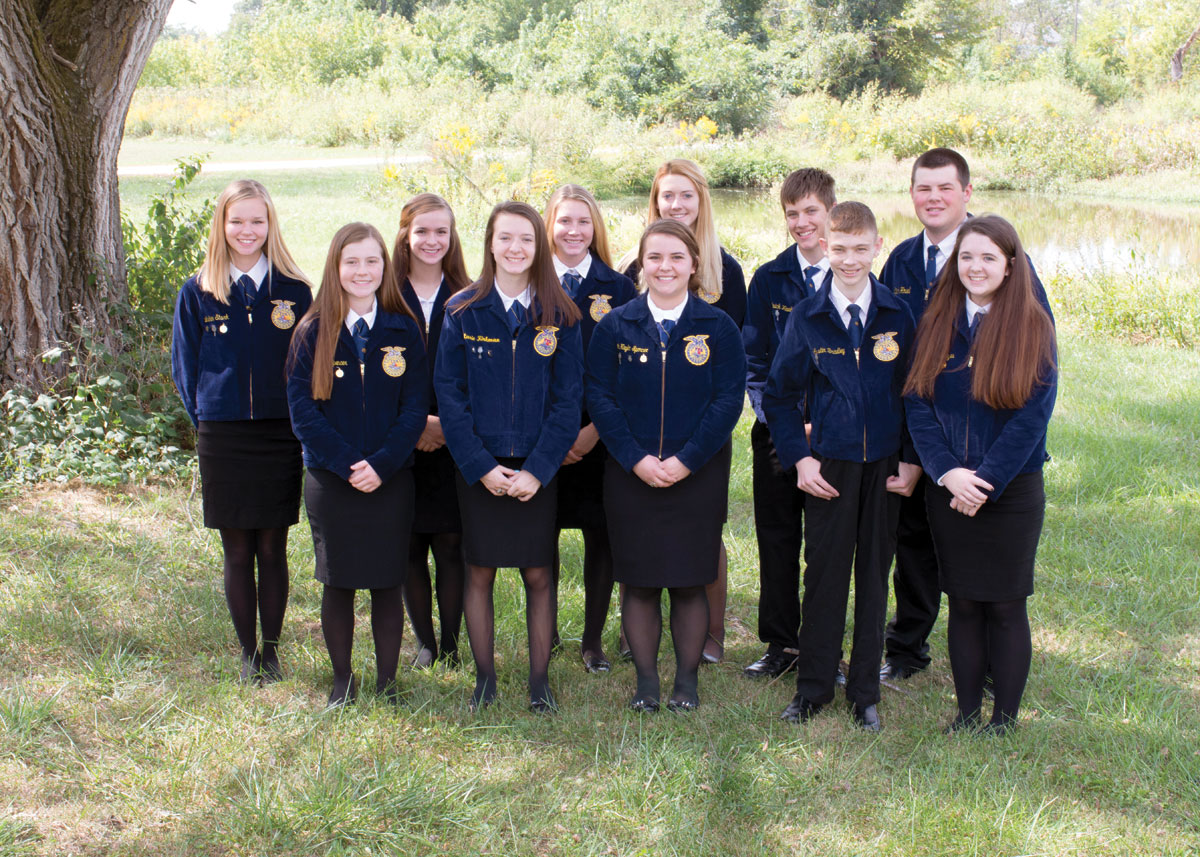 Ricky Jenkins believes that you have to sell quality if you are going to sell anything. He won’t sell any of his livestock that he wouldn’t keep for himself. He is quick to cull out of his herds anything that doesn’t quite meet his standards, and they are pretty high for good reasons.
Ricky Jenkins believes that you have to sell quality if you are going to sell anything. He won’t sell any of his livestock that he wouldn’t keep for himself. He is quick to cull out of his herds anything that doesn’t quite meet his standards, and they are pretty high for good reasons.
The Jenkins family began working with the Gelbvieh breed back in 1999 when his dad, Bill Jenkins, saw a group of calves at an auction and just really liked their looks. They did amazing and he was then on a mission to find more of the same.
What he found was the Gelbvieh breed and they have never looked back. The family continued to add more Gelbvieh into their herd and it wasn’t long before they were raising solely registered Gelbvieh. They found lots of justification to make the transition. Ricky along with his “little big brother,” Danny runs the complete farm operation together. This includes the dairy operation that is not currently using Gelbvieh.
Ricky is quick to point out that it was his dad who recognized the excellent traits of the breed and made the transition. “He was the one who was the great ‘cattleman’. I will never be able to be as good as he was in that regard.” His sudden death in August of 2005 was a tragic loss to the operation and to the family.
The paperwork is an important aspect of the business that would never happen without his mother, Lois Jenkins.
Ricky feels extremely fortunate with his life. He has a job doing what he loves and a wonderful family to top it off. Ricky’s family include his wife, Jamey, who teaches elementary school at Pleasant Hope, and his three children 11-year-old, Courtney, 7-year-old, Rachel and 3-year-old, Bradley.
Ricky loves to talk about his farm, his life, his family and especially Gelbvieh. He continued to sing their praises and said that of course while everyone might not want to raise registered Gelbvieh, the Gelbvieh influence is certainly gaining ground in the area.
Ricky said Gelbvieh are just great all around cattle. They calve easy. They are fast gainers. They have great temperament. Ricky said the breed originated in Germany. They were bred for meat quality, milk production and strength. The breed has made a few changes over the years and become Americanized (influenced by the Angus breed hence the black colors), but doesn’t differ much from its German roots. The breed has since been polled through the introduction of naturally hornless foundation females.
Ricky said, no joke, that in the last 10 years of raising Gelbvieh he can only remember one cow that he had to help calve. She was a young heifer who got into some trouble. He probably calves 100 a year, for the past 10 years, that a lot of unassisted calving.
As a result of the easy calving it has helped solve another problem that faces many farm operations, pulling bulls during off seasons. Ricky said that because of the easy calving they don’t worry about when the cows will calve and literally calve year round. Sure that means there are some times that he is out in the cold but not having to deal with pulling bulls and keeping them up during the off season is worth a few cold nights.
Ricky said the calves hit the ground at 70 to 75 pounds, but then they sure put the weight on fast. The mothers are incredible milk producers. What that means for the bottom line is that those calves weigh significantly more come weaning time as well. Ricky weans all of his calves around 205 days of age and the average calf at that time weighs around 600 to 700 pounds at weaning.
Many people say this breed is the “old man’s” breed because they are so easy to care for. Ricky said that he doesn’t mind because that just means it’s easy for a young man too. The breed is well known for their easy temperament as well. Everybody knows that one flighty cow can affect the whole herd. Statistics now show that easy temperament means more healthy cows, feed efficiency, weight gains, dressing percentage and meat quality.
Excellent longevity factor is another difference that Ricky’s experience showed that these cows have as well. He recently had a 14-year-old cow give birth. “She’s been such a good cow for us, I think she just deserves to retire and live out the rest of her life here on good pasture. I know what I should do, but down deep I just don’t know if I could ever do that to her. She’s been such a good one.”
Ricky finds a lot of satisfaction in having something that people want. “You know you’ve got something when your customers come back again and tell other people about what you’ve got.”







